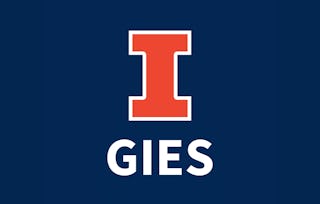Marketers must make the best decisions based on the information presented to them. Rarely will they have all the information necessary to predict what consumers will do with complete certainty. By incorporating uncertainty into the decisions that they make, they can anticipate a wide range of possible outcomes and recognize the extent of uncertainty on the decisions that they make. In Incorporating Uncertainty into Marketing Decisions, learners will become familiar with different methods to recognize sources of uncertainty that may affect the marketing decisions they ultimately make. We eschew specialized software and provide learners with the foundational knowledge they need to develop sophisticated marketing models in a basic spreadsheet environment. Topics include the development and application of Monte Carlo simulations, and the use of probability distributions to characterize uncertainty.

Managing Uncertainty in Marketing Analytics
Ends soon: Gain next-level skills with Coursera Plus for $199 (regularly $399). Save now.

Managing Uncertainty in Marketing Analytics
This course is part of Foundations of Marketing Analytics Specialization

Instructor: David Schweidel
11,802 already enrolled
Included with
(68 reviews)
Skills you'll gain
Details to know

Add to your LinkedIn profile
See how employees at top companies are mastering in-demand skills

Build your subject-matter expertise
- Learn new concepts from industry experts
- Gain a foundational understanding of a subject or tool
- Develop job-relevant skills with hands-on projects
- Earn a shareable career certificate

There are 4 modules in this course
Module 1 focuses on developing an understanding where randomness appears in marketing problems. You will learn basic rules for calculating the probability of outcomes. We will also examine how these rules can be applied to determine the value of information
What's included
3 videos2 readings1 assignment
Building on the basics of randomness and probability discussed in Module 1, we examine the use of Monte Carlo simulations for incorporating randomness into business problems. Using Microsoft Excel, we will build a tool that conducts a Monte Carlo simulation. We will use this tool to evaluate the best course of action for a particular business problem.
What's included
1 video4 readings1 peer review
In Module 3, we look at the use of probability distributions as a means of characterizing uncertainty. We initially look at how uncertainty is incorporated into a general decision making framework. We then turn our attention to different probability distributions that can be used to model uncertainty, depending on the nature of the data. We examine the application of these probability distributions to assess the likelihood of events using features within Microsoft Excel.
What's included
5 videos1 reading1 assignment
Building the the discussion of probability distributions in Module 3, we apply this knowledge to a specific application: the design of extended service warranty plans. We provide an overview of the business problem and discuss how to incorporate uncertainty in customers' use of the warranty plan using the Poisson distribution. Using Microsoft Excel, we design a spreadsheet tool that enables a user to adjust features of the service plans. By comparing firm profit under different scenarios, we investigate how different features of the service plan result in risk being shared by the consumer and the firm.
What's included
4 videos4 readings1 peer review
Earn a career certificate
Add this credential to your LinkedIn profile, resume, or CV. Share it on social media and in your performance review.
Instructor

Offered by
Explore more from Marketing
 Status: Free Trial
Status: Free TrialUniversity of Colorado System
 Status: Free Trial
Status: Free TrialUniversity of Colorado System
 Status: Free Trial
Status: Free TrialUniversity of Illinois Urbana-Champaign
 Status: Preview
Status: PreviewUniversity of Virginia
Why people choose Coursera for their career




Learner reviews
68 reviews
- 5 stars
57.35%
- 4 stars
27.94%
- 3 stars
7.35%
- 2 stars
2.94%
- 1 star
4.41%
Showing 3 of 68
Reviewed on Jun 4, 2017
Great course with very applicable skills for professional or personal life.
Reviewed on Sep 24, 2017
Just as other courses in the series, this course offers hands-on experience with statistical analysis and many opportunities to apply acquired learnings in practice.
Reviewed on Jun 10, 2020
The instructor instructions were very brief for the assignments and tests. The questions in the test were very difficult to understand as to what answer is required.

Open new doors with Coursera Plus
Unlimited access to 10,000+ world-class courses, hands-on projects, and job-ready certificate programs - all included in your subscription
Advance your career with an online degree
Earn a degree from world-class universities - 100% online
Join over 3,400 global companies that choose Coursera for Business
Upskill your employees to excel in the digital economy
Frequently asked questions
To access the course materials, assignments and to earn a Certificate, you will need to purchase the Certificate experience when you enroll in a course. You can try a Free Trial instead, or apply for Financial Aid. The course may offer 'Full Course, No Certificate' instead. This option lets you see all course materials, submit required assessments, and get a final grade. This also means that you will not be able to purchase a Certificate experience.
When you enroll in the course, you get access to all of the courses in the Specialization, and you earn a certificate when you complete the work. Your electronic Certificate will be added to your Accomplishments page - from there, you can print your Certificate or add it to your LinkedIn profile.
Yes. In select learning programs, you can apply for financial aid or a scholarship if you can’t afford the enrollment fee. If fin aid or scholarship is available for your learning program selection, you’ll find a link to apply on the description page.
More questions
Financial aid available,
¹ Some assignments in this course are AI-graded. For these assignments, your data will be used in accordance with Coursera's Privacy Notice.

